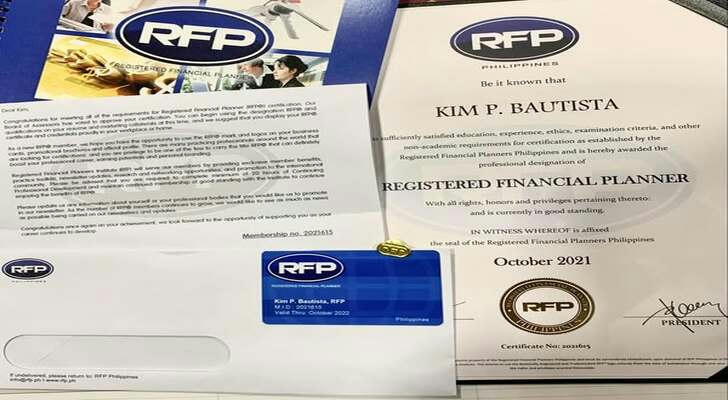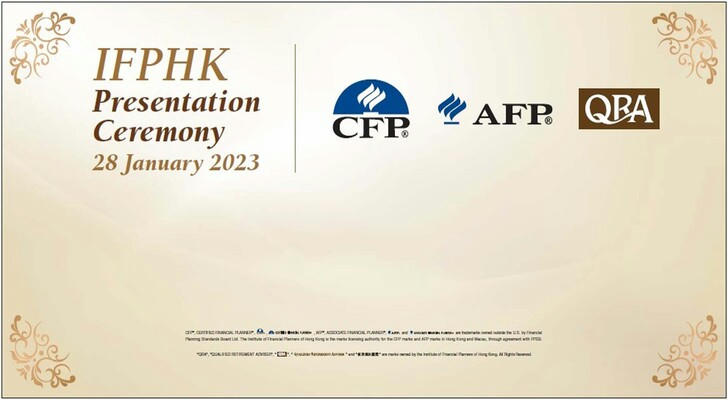The AFP Certification: Building Expertise in Financial Planning
The Global Relevance of AFP Certification
The Associate Financial Planner (AFP) credential, accredited by the Financial Planning Standards Board (FPSB), stands as a cornerstone for professionals entering the wealth management industry. Recognized in over 27 countries, this certification validates a candidate's proficiency in financial planning fundamentals, ethical standards, and client-centric service delivery. As the first stage of the globally respected CFP (Certified Financial Planner) program, the AFP equips practitioners with the tools to analyze personal and family finances, design actionable strategies, and navigate complex financial landscapes. Its curriculum aligns with evolving market demands, including digital finance and sustainable investing trends, ensuring graduates remain competitive in a dynamic global economy.

Core Curriculum: Skills and Knowledge Domains
The AFP certification program is structured to build expertise across three pillars:
1. Foundational Financial Planning
- Financial Analysis: Candidates learn to create and interpret family balance sheets, cash flow statements, and debt management plans. Tools like time-value-of-money calculations and budgeting software are emphasized to evaluate clients' financial health.
- Risk Management: Training covers insurance principles, risk assessment frameworks, and strategies to mitigate life, health, and property risks. Case studies on liability management and emergency fund planning reinforce practical application.
2. Investment and Retirement Strategies
- Portfolio Construction: Modules on asset allocation, bond/stock valuation, and mutual fund analysis teach candidates to build diversified portfolios aligned with client risk tolerance.
- Retirement Planning: Techniques for calculating pension needs, optimizing Social Security benefits, and utilizing tax-advantaged accounts (e.g., 401(k)s) are explored. Practical exercises include simulating retirement income scenarios.
3. Legal and Ethical Frameworks
- Regulatory Compliance: Courses address financial laws, fiduciary responsibilities, and ethical guidelines from the FPSB's Code of Ethics. Real-world scenarios, such as handling conflicts of interest, prepare candidates for ethical decision-making.
Certification Pathway: Rigor and Accessibility
Earning the AFP credential involves a structured four-step process:
Training Requirements:
- Complete 108 hours of accredited coursework, available through online or hybrid formats. Topics span financial planning principles, tax optimization, and retirement strategies.
- Practical components include using "Golden Cradle" financial software to model client scenarios and submit case studies.
Examinations:
- A six-hour, closed-book exam tests theoretical knowledge (e.g., economics, investment theories) and applied skills through 180 multiple-choice questions.
- Passing thresholds emphasize competency in critical areas like debt restructuring and education funding.
Experience and Ethics:
- Candidates must demonstrate 1-3 years of relevant work experience in banking, insurance, or wealth management, verified by supervisors or certified professionals.
- Adherence to FPSB's Code of Ethics and Standards of Professional Conduct is mandatory, ensuring trust and accountability in client relationships.

Career Opportunities and Industry Recognition
AFP-certified professionals are highly sought after across sectors:
- Banking and Wealth Management: Roles include personal financial advisor, private banking associate, or branch manager. Major institutions like ICBC and HSBC prioritize AFP holders for client-facing roles.
- Insurance and Retirement Planning: Graduates design tailored insurance products and pension plans, addressing gaps in healthcare coverage or longevity risks.
- Entrepreneurship: Many launch independent advisory firms or fintech startups, leveraging AFP's credibility to attract high-net-worth clients.
Cities like Shanghai, Guangzhou, and Singapore offer AFP holders subsidies, residency benefits, and access to exclusive industry networks, reflecting the credential's prestige.
Continuing Education and Specializations
The AFP certification is a springboard for advanced credentials:
- CFP Certification: Focuses on advanced estate planning, behavioral finance, and cross-border wealth management.
- ESG Investing: Specialized tracks in sustainable finance, such as the Certified Green Financial Consultant (CGFC), align with global ESG reporting standards.
FPSB mandates 30 hours of continuing education biannually, covering emerging trends like cryptocurrency regulation and AI-driven financial tools.
Ethical Stewardship and Social Impact
AFP training emphasizes responsible financial practices:
- Client Advocacy: Advisors are trained to prioritize client goals over sales targets, ensuring transparency in fee structures and product recommendations.
- Community Engagement: Programs encourage participation in financial literacy workshops, pro bono planning for low-income families, and disaster recovery funding initiatives.

Conclusion
The AFP certification transcends technical mastery—it fosters a culture of integrity, innovation, and lifelong learning in financial planning. By equipping professionals with globally relevant skills and ethical frameworks, the AFP empowers advisors to transform clients' financial futures while advancing the industry's credibility. Whether navigating retirement complexities or pioneering sustainable investment models, AFP graduates are poised to lead the next generation of wealth management.
References:
- AFP Training Curriculum (Sogou Baike, 2024)
- AFP Career Pathways (FPSB China, 2025)
- AFP Practical Case Studies (Original Document, 2025)
- AFP Industry Recognition (Financial Education Network, 2025)
- AFP Certification Process (Career Development Guide, 2024)
- ESG Integration in AFP Training (Industry Report, 2024)
- Ethics and Experience Requirements (FPSB Guidelines, 2025)
- Global AFP Recognition (FPSB China, 2025)
- Examination Structure (Shanghai Contemporary Financial Training, 2025)
